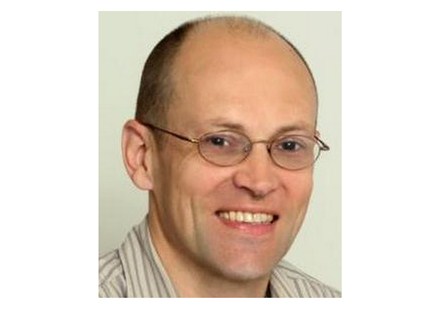
Andrei Tsygankov
Andrei Tsygankov is professor of international relations and political science at San Francisco State University.
Russia andWestern nations continue tobe divided over issues such as Syria andmissile defense systems.
Psychological andideological traits ofnational leaders do not fully explain this divide. Thelarger cause ofdivide between Russia andthe West is adisagreement between national elites over emerging world order. Western nations continue toperceive themselves as theleading part ofthe world. Intheir perception, they hold thekey tothe global financial architecture, possess themost powerful military capabilities andare institutionally superior toRussia andrising powers.
But Russia focuses onthe West's limited ability toproject global power. InRussia's view, the2008 Russia-Georgia War undermined theWest's monopoly foruse offorce inworld politics. Inaddition, theglobal financial meltdown revealed theWest's economic vulnerability. TheKremlin anticipates anew power balance andacts assertively topromote Russia's values andinterests.
WhenDmitry Medvedevwas president, he attempted toimprove relations with theWest byfocusing onnuclear nonproliferation andeconomic development. U.S. President Barack Obama andEuropean leaders wanted towork with Medvedev, but they expected Moscow tofollow their lead anddismissed Russia's proposal fora new all-European treaty andwarnings fromthe Kremlin that anew arms race may take place should Russia andthe Western nations fail tocooperate onmissile defense.
After returning tothe Kremlin, PresidentVladimir Putincontinued totry tofind anew role forRussia inthe international system bychallenging theestablished position ofWestern nations. InFebruary, Russia released anew foreign policy conception that contained theideas oftransition toward amultipolar structure ofthe international system. Thedocument emphasized global competition, inwhich different "values anddevelopment models" would be tested and"civilization identity" would obtain anew importance. Russia is beginning tosee itself as culturally andpolitically independent fromthe West.
Byassuming theend ofWestern domination andU.S. "unipolarity" inthe international system, theKremlin developed new expectations about theWest. Inparticular, it expects Western nations toput anend totheir assertive projection ofpower andvalues. Projects such as NATO expansion anddemocracy promotion are tobe replaced bycoordination ofWestern policies with other powers as equal participants inshaping world order. TheKremlin anticipates growing opportunities forpromoting its interests andvalues outside ofEurope andthe U.S. andis prepared toexercise its options independently if theWest chose toignore Russia's new international ambitions.
This worldview bythe Kremlin makes little room forcooperation between theWest andRussia, andthe West, too, feels it has no ground toconcede. Not only are Western leaders convinced ofthe superiority oftheir values, but they are also skeptical ofRussia's ability tosustain its ambitions andview Russia as fundamentally weakened bythe competition ofrival clans within theKremlin.
Neither side is realistic inits assessment andexpectations. Russia overstates the"multipolarity" argument, while theWest is dismissive ofMoscow's role inthe international system. Both sides occasionally make adjustments intheir exaggerated world views, but neither one is willing tooffer abold vision oftackling theworld's problems jointly out offear ofrisking their relations with domestic constituencies. True leadership is missing onboth sides andis not likely toappear any time soon.
Although Russia andthe West will continue tocooperate onsome issues, it is difficult tosee any meaningful agreement onissues pertinent tothe structure ofemerging international order. Thetwo sides are likely toview their influence oncritically important nations such as Syria, Ukraine or Uzbekistan inmutually exclusive terms.
Thegap inperceptions will shape disagreements foryears tocome. Forthis gap tobe reduced, anew world order must take shape. Before thesides will reassess thebenefits ofcooperation, new boundaries ofinfluence andcontrol will have tobe drawn. Thepost-Western century is coming, as Moscow, Beijing, Tehran, Delhi andothers are figuring out their role inthis new structure. Fornow, that role remains unclear because international transitions are difficult andtake time.



.jpg/250px-ElbeDay1945_(NARA_ww2-121).jpg)





